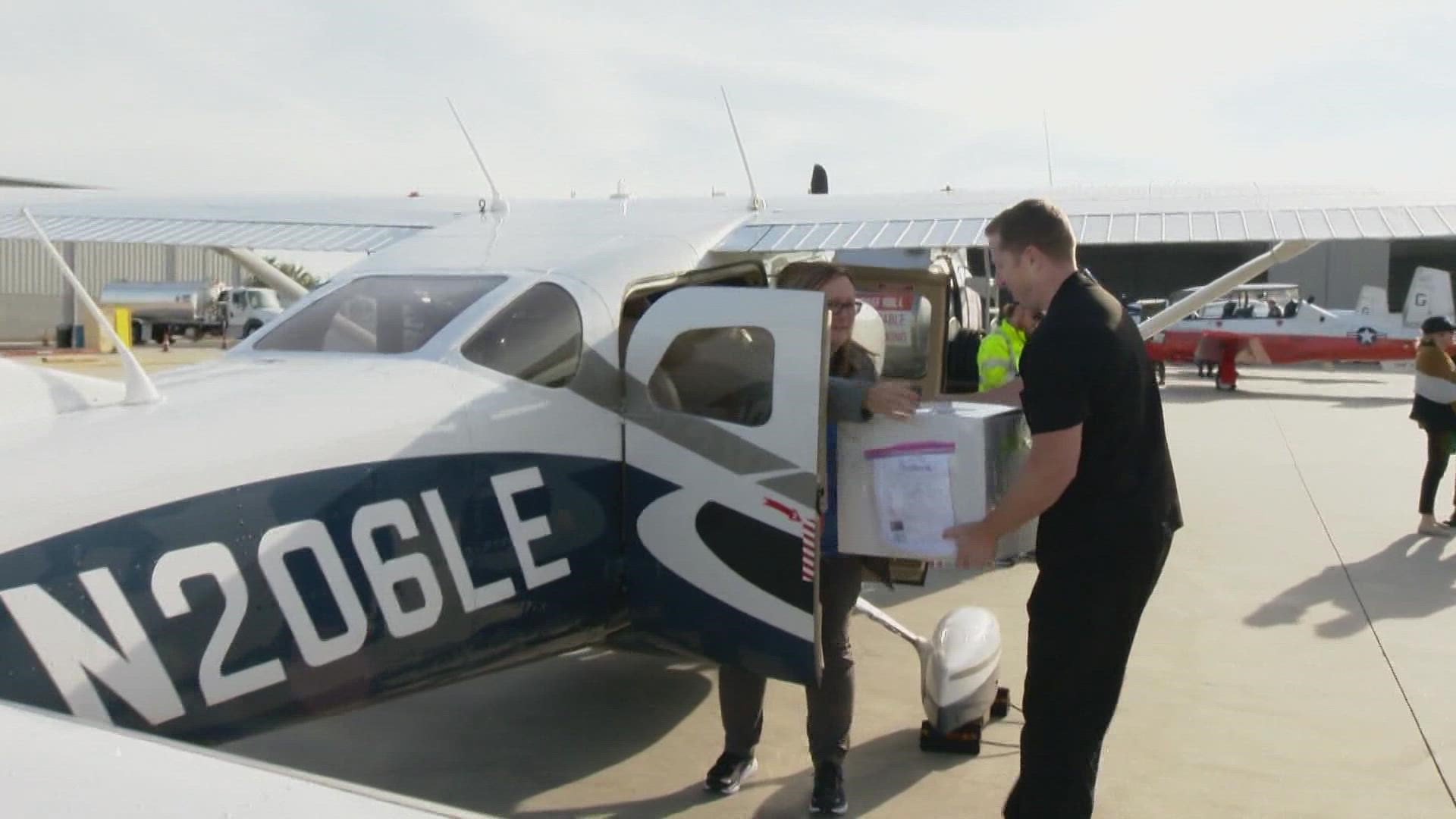SAN ANTONIO — Drone ‘superhighways’ may be the way of the future, allowing us to transport goods a lot faster. This technology could also be lifesaving.
On Tuesday, a new pilot program took to the skies. The Texas Organ Sharing Alliance (TOSA), in partnership with Texas Tech and other nonprofits, delivered organs to cities hundreds of miles apart by drone.
“It looks like a plane. It is a plane,” said TOSA CEO Joe Nespral, pointing to a small aircraft on a private San Antonio runway. “But it actually has the technology and the ability to fly without a pilot.”
TOSA is working to establish a national drone corridor.
“This is groundbreaking, it’s monumental,” said TOSA spokesperson Clara Guerrero. “It is the first time ever that there is an uncrewed drone aircraft that’s being flown into [and out of] San Antonio. In rural communities, we know there are health care challenges. Texas is so vast and there are a lot of remote communities, so really focusing on those areas. In our service area, there are more than 7.4 million people. It’s critical we make sure health inequities are bridged.”
Drones, which are unmanned aircrafts, are not only a cheaper transportation option. Guerrero says they are faster because pilot availability is no longer a factor. She hopes drones will eventually fly directly to hospitals.
A pilot was inside the cockpit during Tuesday’s flight. However, we are told it was controlled robotically.
Delivering organs by drone will need to be approved by the Federal Aviation Administration (FAA).
“We are definitely hoping through our Texas Tech University Health Sciences partnership and all the other affiliates and partners that we are working with today that we will be able to use this very soon,” Guerrero said.
Making sure organs maintain their quality is another important part of the research. Guerrero says organs need to be kept in specific conditions; stored at temperatures between 36 and 46 degrees Fahrenheit. Small planes fly at different altitudes and speeds than a commercial planes, so a biopsy is performed at each stop.
Transporting blood by drone is also being tested, which could have big implications when it comes to mass casualties and disasters.

